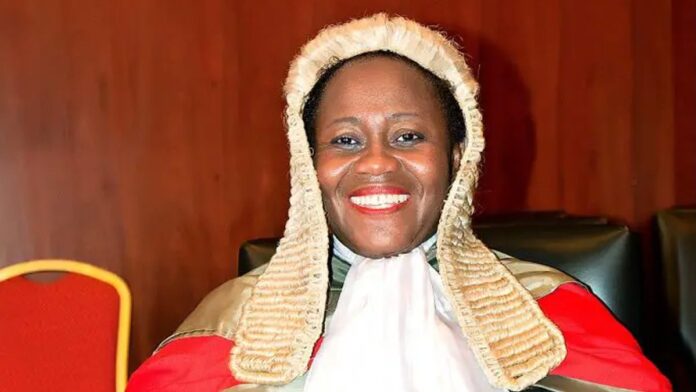The Chief Justice of Ghana, Gertrude Torkornoo, has voiced her support for the inclusion of legal ethics in the curriculum of law faculties.
She emphasized that this move would help to instill the culture of appropriate discipline within the legal profession.
Speaking at a public lecture and the launch of the inaugural Gertrude Torkornoo Moot Court Competition at the Ghana Institute of Management and Public Administration (GIMPA) Law School in Accra, Chief Justice Torkornoo highlighted the need for the study of legal ethics to be accompanied by guidelines on dress code and other codes of behavior for legal practitioners.
The Gertrude S. Torkornoo Moot Court Competition is a national contest that will bring together participants from various law faculties across Ghana, providing a platform for students to enhance their advocacy and litigation skills in preparation for their future legal careers.
During her engagement with participants, the Chief Justice stressed the importance of ethical values in adjudication and successful lawyering, emphasizing that discipline played a key role in achieving a successful career in the legal profession. She also pointed out that the justice sector derives its strength from the constitution, statutes, and professional codes of conduct.
Chief Justice Torkornoo emphasized that the application of ethical values in legal work is a constitutional requirement and not just a matter of morality and philosophy. She referenced the ethical values outlined in the 1992 Constitution, which include the independence of the judiciary, integrity, competence, and diligence in the delivery of justice.
In addition, she discussed the significance of independent thinking, competence, diligence, and integrity in the legal profession, highlighting the role of these qualities in correctly interpreting facts and legal principles.
The Chief Justice expressed her delight at the elevation of the Moot Court as an extracurricular activity at the GIMPA School of Law, describing it as a unique opportunity for faculties and schools of law to integrate a contest of learning into their curriculum that promotes the training of skills and values.

